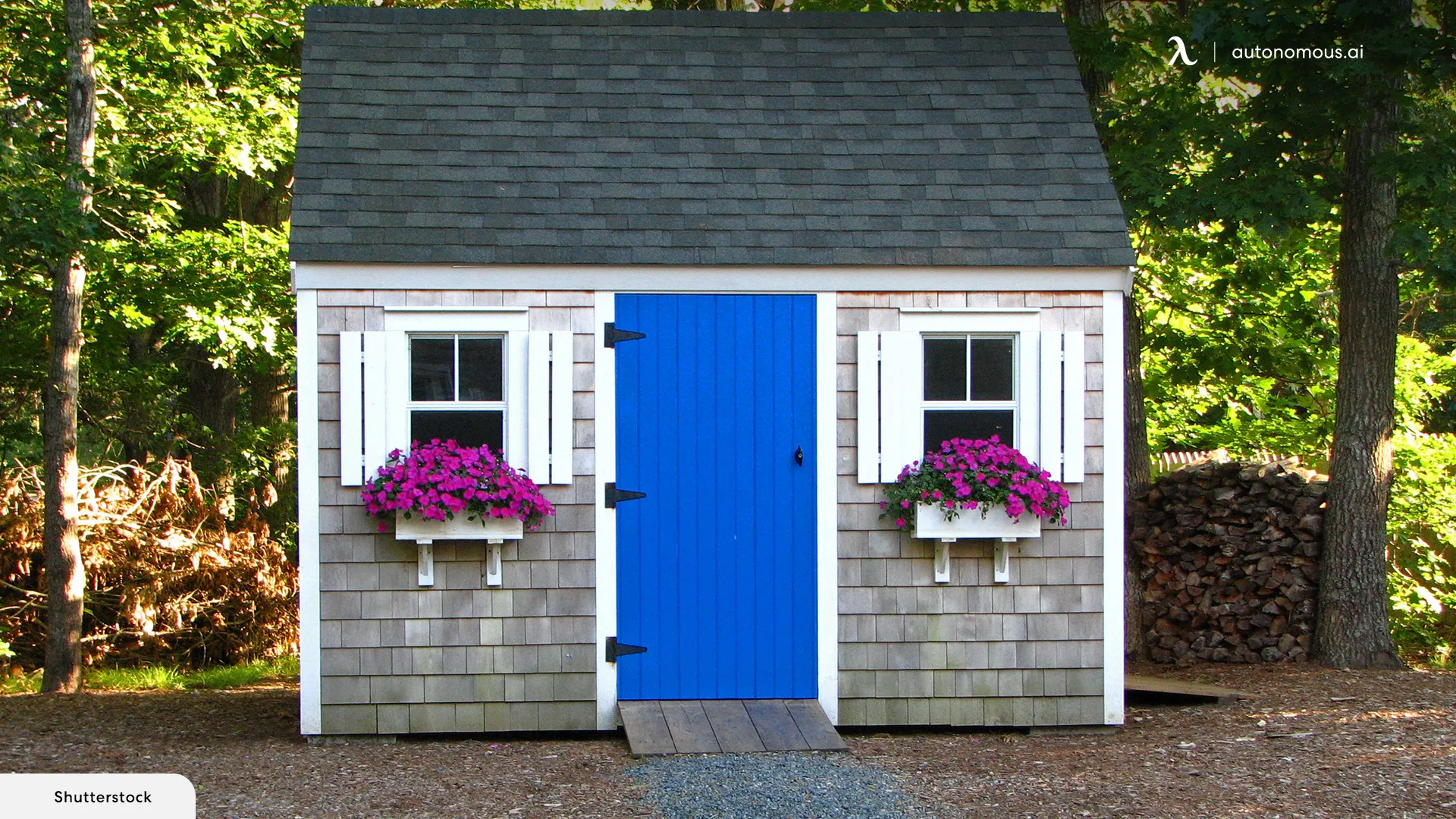
What Are the Rules and Requirements of Prefab Homes in Wisconsin?
Table of Contents
Investing in prefab homes in Wisconsin is a great way to expand your living space without the need for home remodeling and construction work. Plus, it's more affordable, and you can use the tiny house for work or leisure purposes.
However, there are specific laws that you need to be wary of before you can start building accessory dwelling units (ADUs) in your backyard. This comprehensive guide will cover the different regulations pertaining to manufactured homes in Wisconsin that you must consider.
Keep reading until the end, as we will explore the costs of a tiny home in Wisconsin and how you can save money by investing in an Autonomous ADU. Let's get started!
The Wisconsin Prefab House and ADUs Regulations to Consider
When it comes to building and installing prefab homes in Wisconsin, homeowners need to consider the different rules and regulations, which may vary at the state and local levels.
The following are some of the general guidelines that you must consider before building and installing prefab ADUs in Wisconsin:
Property Designations
You cannot install a prebuilt ADU anywhere you like. The state has rules and regulations for manufactured homes in Wisconsin, including property designations.
In Wisconsin, the government gives specific designations to different areas, and these include the following:
- Residential
- Commercial
- Mixed
The above-mentioned designations determine whether you can build modular homes in a particular area. Each region will have a different designation, which you must follow.
If the state gives a commercial designation to an area, for example, it may not be possible for you to build a prefab ADU for the purpose of residential living.
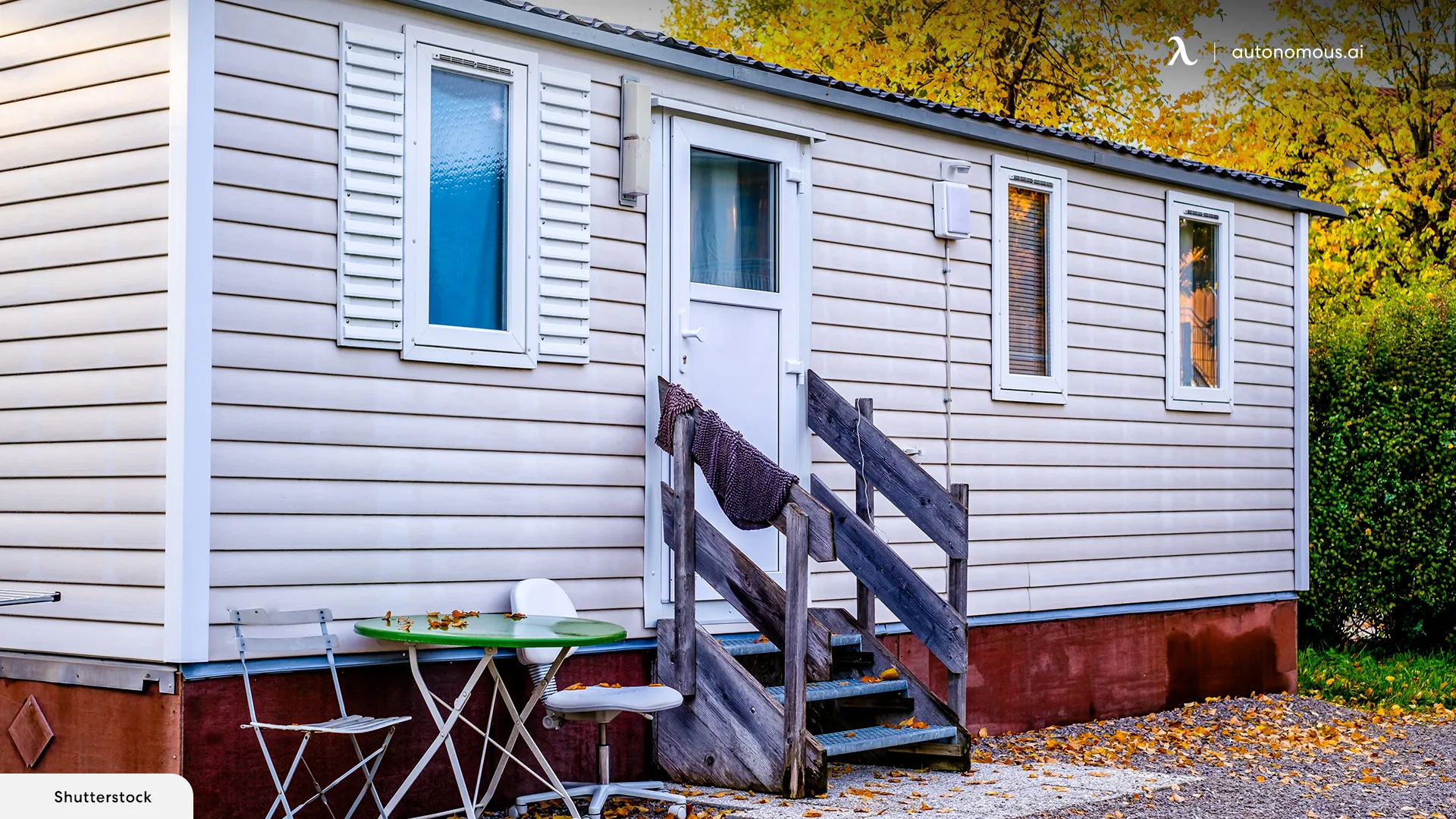
Size and Height Restrictions
There are also size and height restrictions that you must adhere to if you wish to install a prefab house in Wisconsin. These regulations may vary according to the zoning district, and you may find more information about them in the local zoning codes.
The design of the prefab homes or ADUs must adhere to the state's building codes and architectural standards. Typically, the maximum size and height depend on the lot's size or the primary dwelling's square footage.
Depending on the county, the minimum size of a tiny house in Wisconsin is between 120 and 200 square feet (with at least one habitable room).
Setback Requirements
Another important regulation that you must adhere to is the setback requirements. These refer to the minimum distance that prefab homes in Wisconsin must be located from public streets, roads, rivers, and other structures.
The goal of implementing setback requirements when it comes to modular homes in Wisconsin is to ensure safety, privacy, and proper spacing between the buildings in the state.
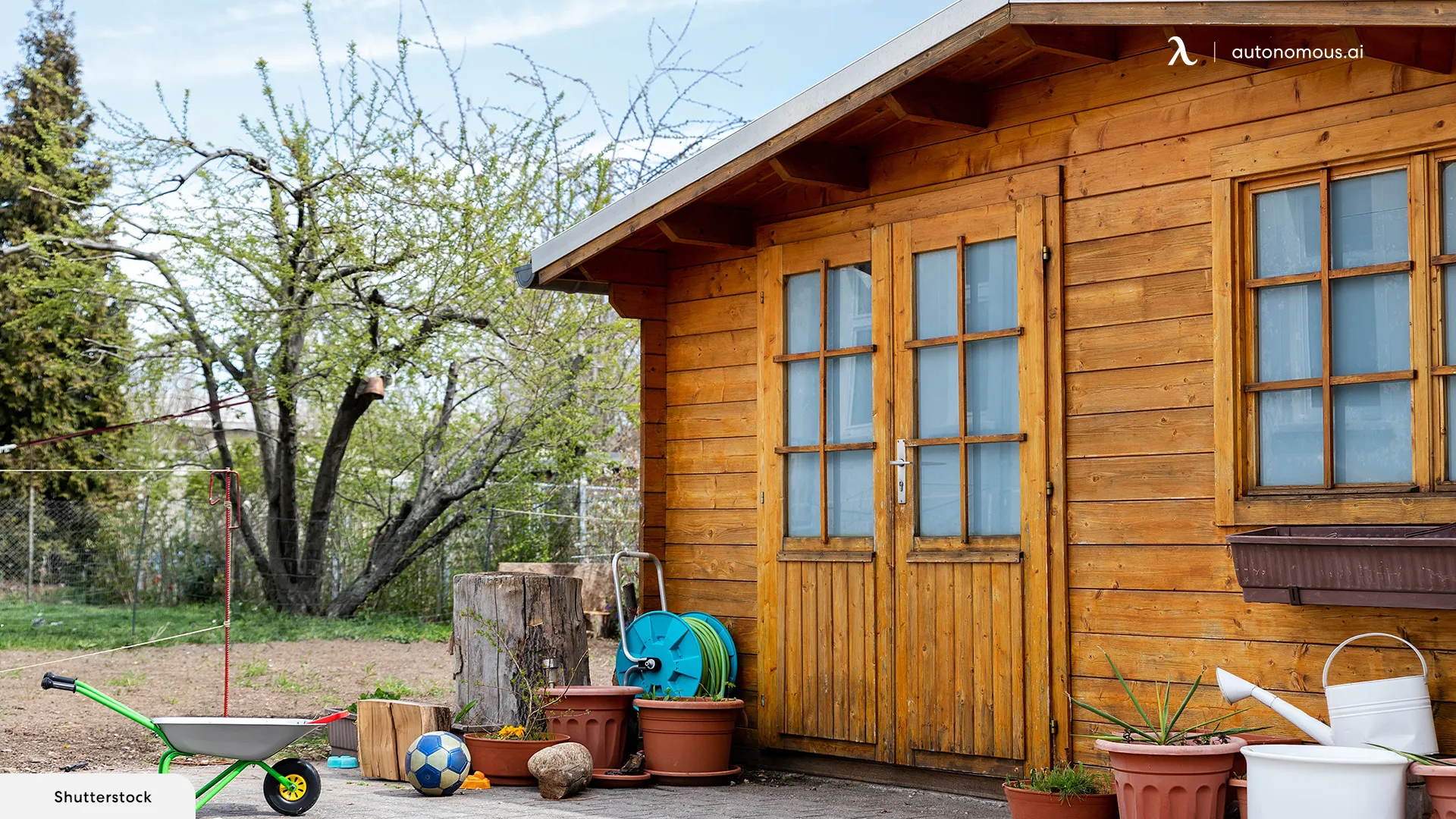
Development Standards
Residents living in Wisconsin not only have to adhere to the development standards of the state but also the local governments (depending on the municipality)
Development standards are a broad set of requirements pertaining to prefab ADUs in Wisconsin, and they cover the type of materials used, architectural design, and landscaping, among others.
If you're looking to install a prefab studio in Wisconsin, it's crucial that you thoroughly go through the local building codes or consult with an expert on the different development standards.
Height Limitations
The height limitations may vary depending on the zoning districts in Wisconsin.
If a particular municipality requires a maximum height of 24 inches from the ground to the diagonal strap attachment, for example, you cannot exceed that limit.
Fire and Security Safety Requirements
When building and installing prefab homes in Wisconsin, it's important to consider fire and security requirements.
If your outside shed or tiny home studio doesn't meet the specific requirements mentioned in the building codes, you may not have permission to place it on your property.
Fire and security safety requirements specify the type of materials and smoke detectors used in the prefab studios. It may also include the need for fire exits and other safety features to keep the occupants safe.
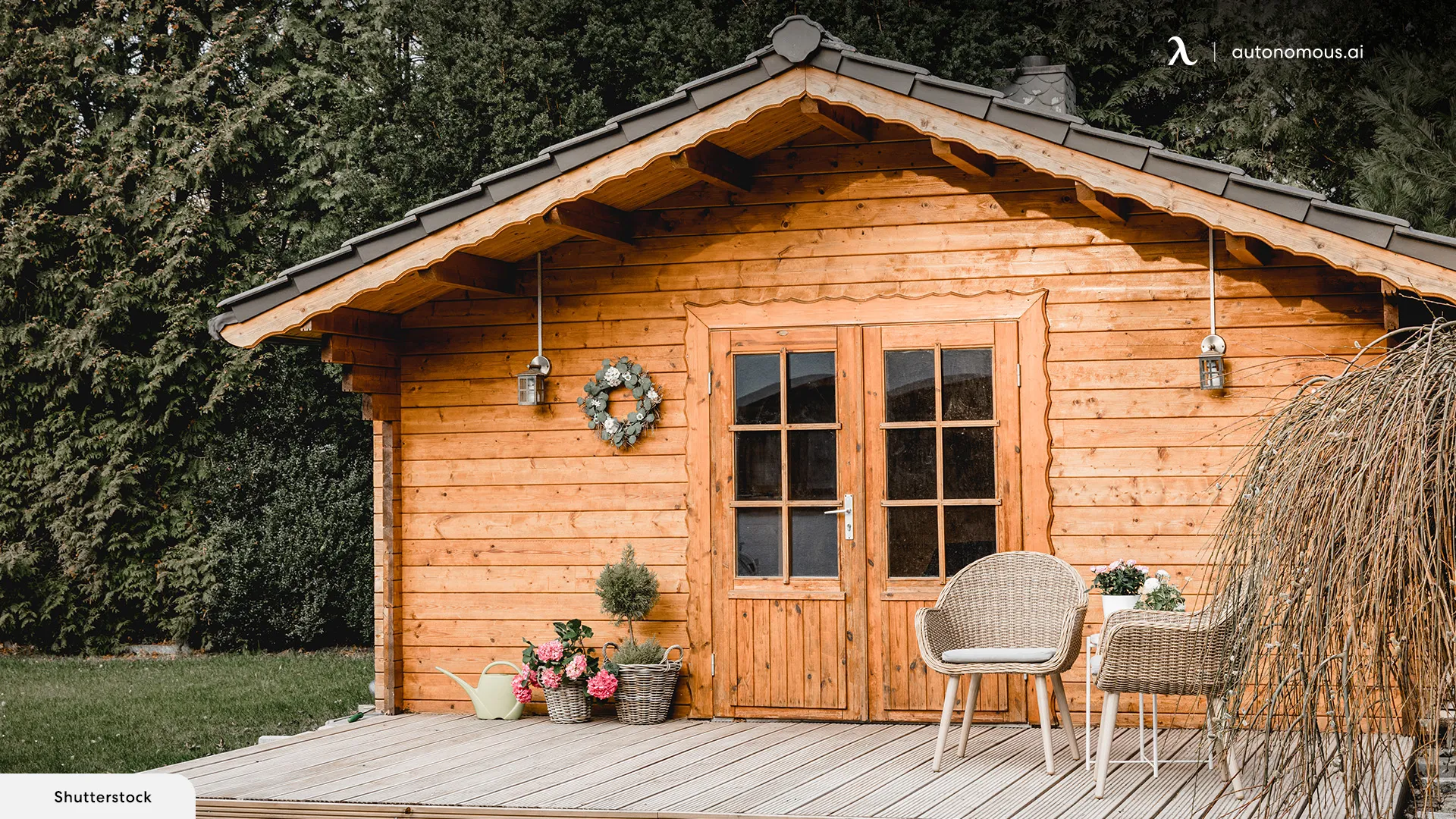
Accessory Structures
Depending on the zoning region, some local ordinances may treat prefab homes as accessory structures.
When building and installing manufactured homes in Wisconsin, it's crucial to adhere to the rules pertaining to detached garages and sheds if the local ordinance treats the ADU as an accessory structure.
Historic Districts
It may come as a surprise to know that there are around 2,300 properties and districts mentioned on the National Register of Historic Places in Wisconsin.
These areas may have additional regulations and design requirements that property owners must follow when building and installing prefab homes in Wisconsin. This helps ensure the historical significance of the region.
Utilities and Infrastructure
Prefab ADUs in Wisconsin must also adhere to the utility and infrastructure requirements, which may include connections to the water, sewage, and electricity supply.
It's essential that you check with the local utility providers to determine the different utilities and infrastructure requirements before building and installing an affordable backyard ADU.
Electrical and plumbing systems may require proper installation and fixtures while adhering to safety, health, and sanitation standards.
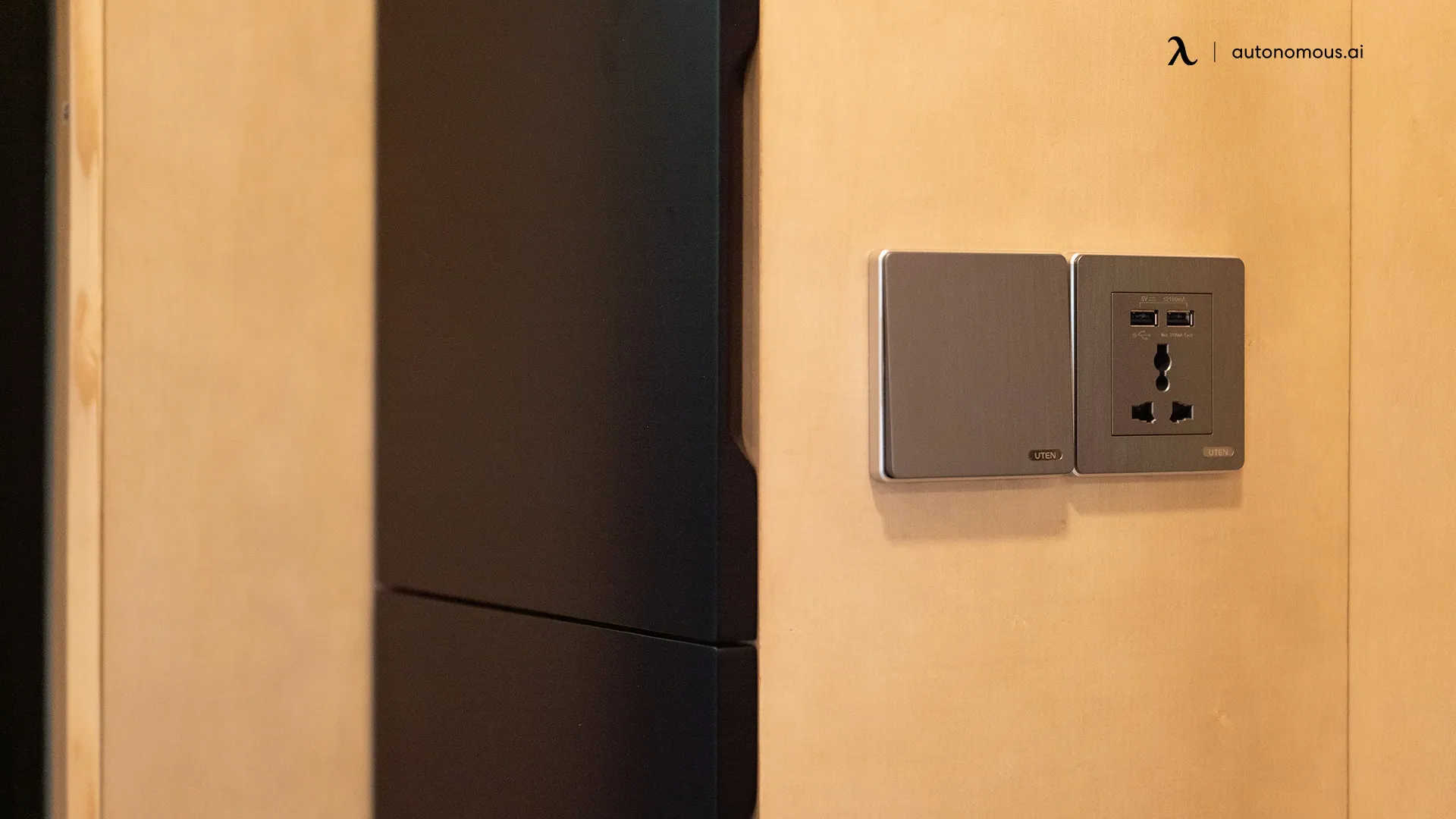
Permit Process
Before property owners can start building modular homes in Wisconsin, they must get the necessary permits.
To get a permit for building a prefab house in Wisconsin, you must submit a detailed construction plan and documentation to the local permitting authority.
The relevant department will inspect the property and review the plans for compliance with the local building codes, fire and safety requirements, and other regulations.
Legal Rental Requirements
Investing in prefab homes in Wisconsin is a great way to generate a source of income, as you can rent out the space to others.
However, before you can even let anyone stay at your property, you must familiarize yourself with the legal requirements for rental units in the state to avoid trouble with the law.
The building codes and legal requirements for prefab ADUs in Wisconsin may vary from one county to the other. It's crucial to hire a professional constructor or architect to help guide you on the rules and regulations before installing a tiny home.
If you're residing in The Evergreen State and are looking for more information on the Washington State ADU regulations, don't forget to check out our recent blog post.
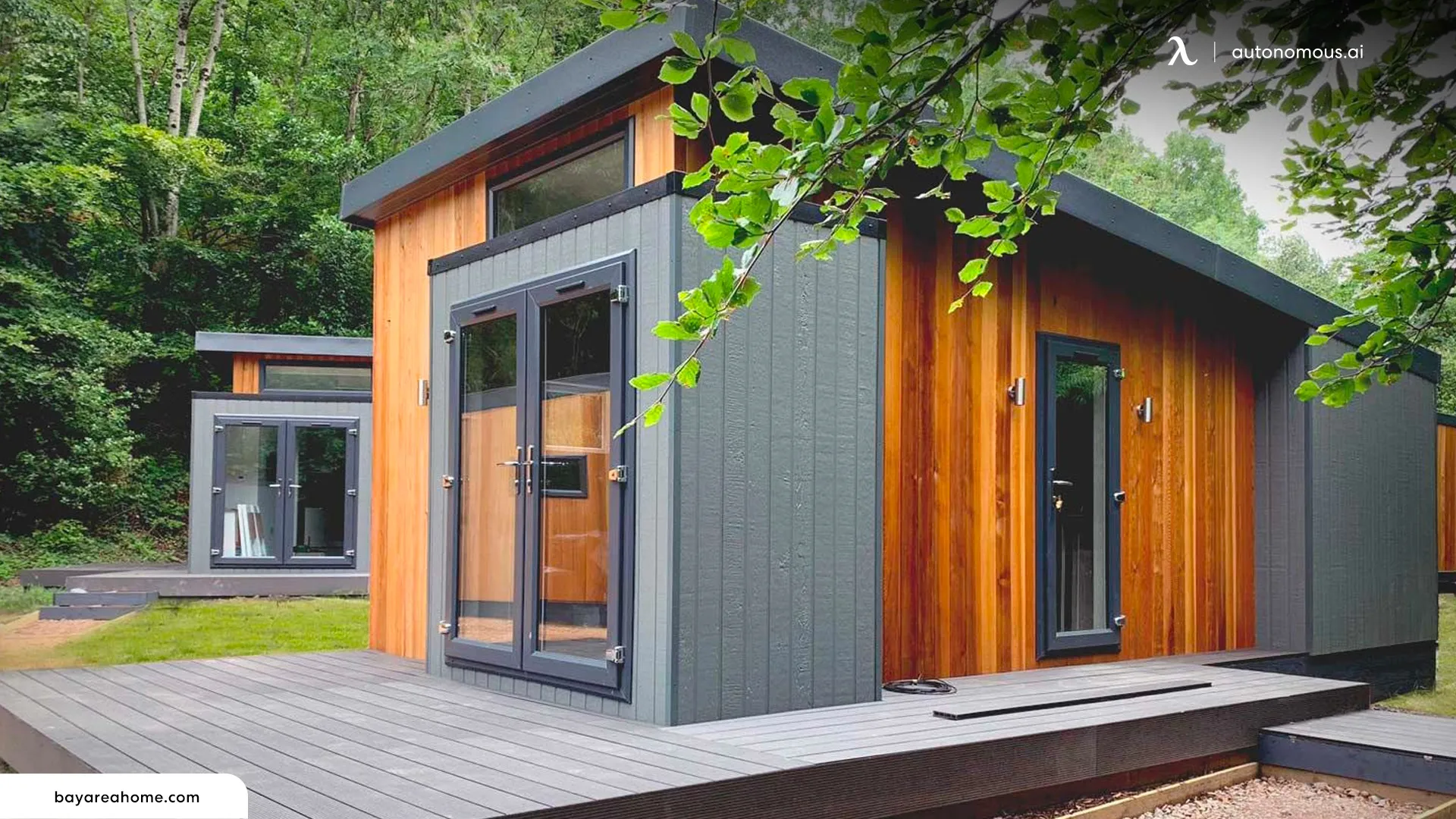
Where Can Residents Build Prefab Homes in Wisconsin?
Under the tiny home regulations in Wisconsin, you can build and install an ADU in the following locations:
- Private land: If you own a piece of land or are renting land and have permission from the owner, you can build a tiny home there. Make sure the property designations align with the primary purpose of the ADU.
- Tiny house communities: There are a few tiny house communities in Wisconsin, such as Canoe Bay ESCAPE Village, where it may be possible for you to build an ADU.
- Campgrounds and RV parks: In a few campgrounds and RV parks around Wisconsin, you can get a long-term place where you may be able to build an ADU.
- ADU-friendly areas: There are some cities and towns in Wisconsin, like Madison, that allow the residents to build tiny homes. These places often have ADU-friendly laws that simplify the process of building and installing a prefab house in Wisconsin.
How Much Does It Cost to Build a Tiny House in Wisconsin?
Building and installing prefab homes in Wisconsin can range between $40,000 and $90,000, depending on the size and the location.
What Are the Counties That Allow ADUs in Wisconsin?
It's important to note that not all counties have tiny house-friendly laws, and every county has power when it comes to regulating these types of buildings.
Dane County, Vernon County, and Barron County are some of the counties in Wisconsin where you can build a tiny home.
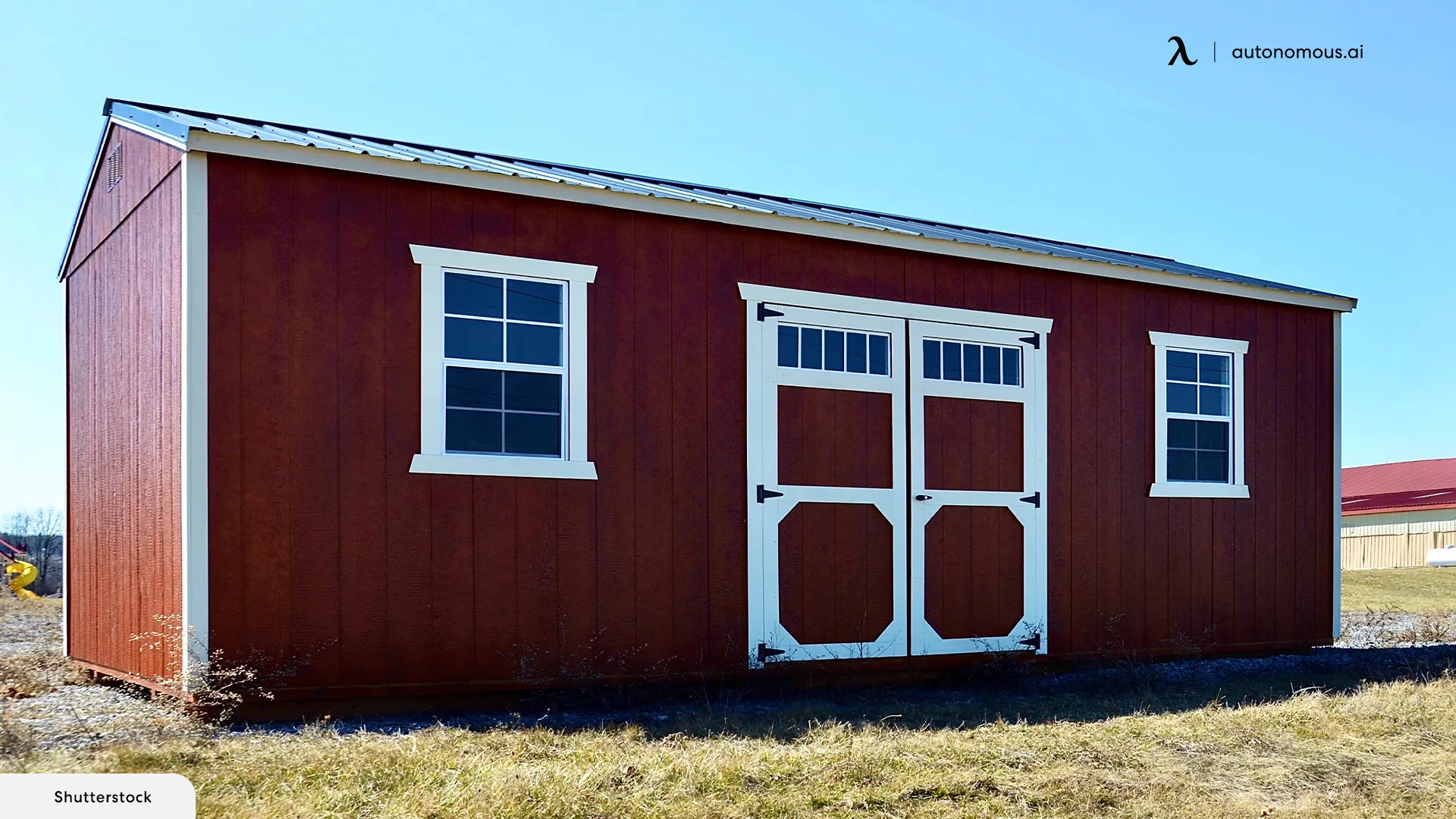
Designing and Building ADUs in Wisconsin
When it comes to designing and building manufactured homes in Wisconsin, it's essential to consider the regulations and design elements. Failure to adhere to the local ordinances can lead to financial and legal consequences.
Size, layout, and architectural style are essential components of designing and building prefab ADUs in Wisconsin. You must consult with an experienced architect and a professional contractor to draw blueprints before executing this massive project.
If you're looking to build and live in an ADU in Washington State, don't forget to check out our blog, where we discuss local laws and sustainable design practices.
Sustainable Design Practices for ADUs in Wisconsin
If you're considering building a high-performance home in Wisconsin, you must take the necessary steps to ensure sustainability and energy efficiency in every aspect of your living space.
To reduce electricity consumption, you must invest in proper insulation and energy-efficient windows that maintain and regulate the indoor temperature. This minimizes energy waste and helps you save on utility bills. You can even take it a step further by investing in a solar system to stay off the grid.
By considering passive design strategies, you can maximize the natural lighting and ventilation in your ADU or prefab home. This will help you save on cooling or heating costs all year round.
Rainwater harvesting systems can remove your reliance on the local water supply, while sustainable building materials can help you create a greener ADU in Wisconsin.
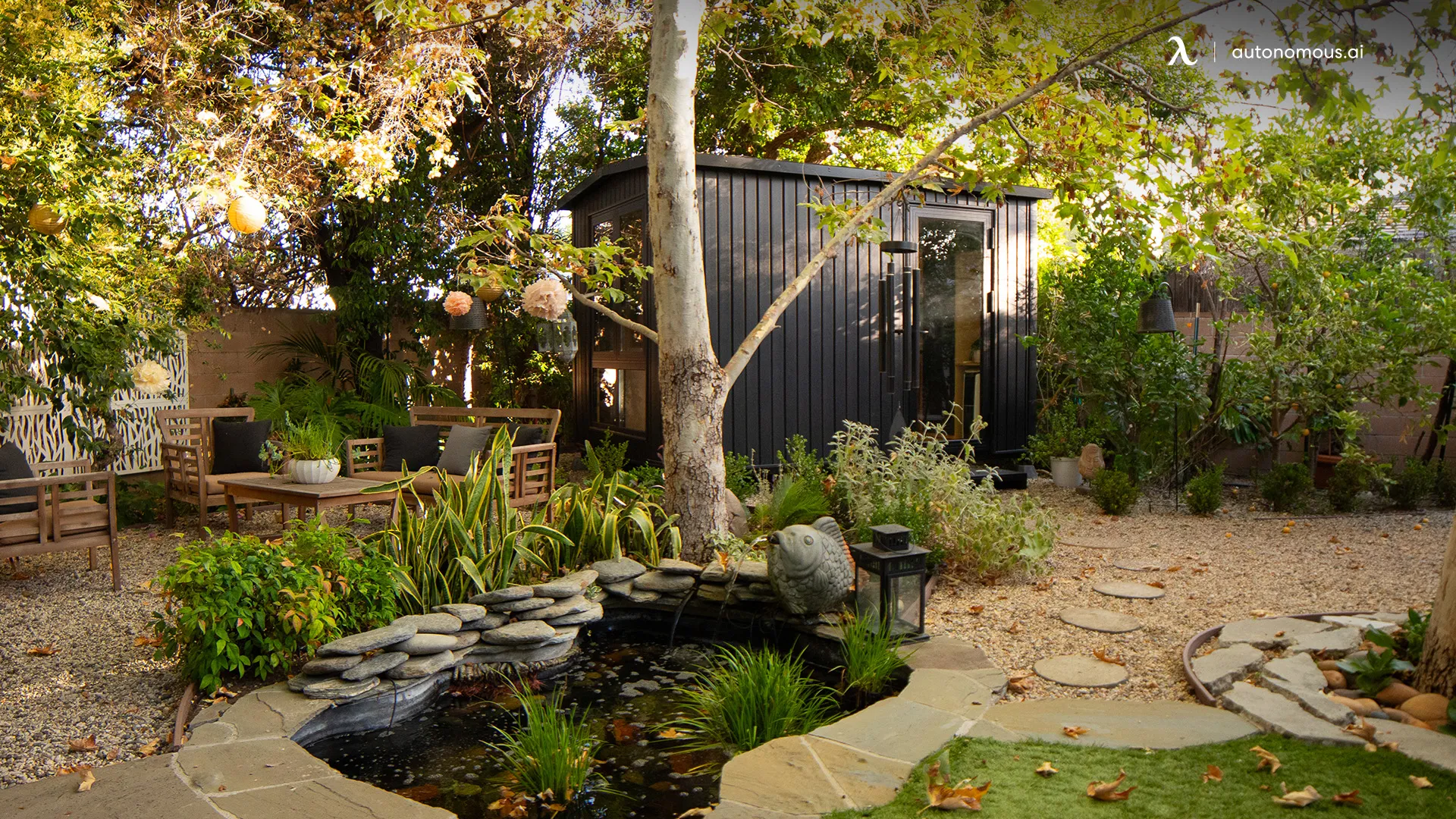
Why Choose Autonomous ADUs?
Building and installing a tiny home in your backyard is a lot of work and requires consultation with experts to ensure compliance with local ordinances and regulations.
Fortunately, Autonomous has a wide range of prefab ADUs that you can choose from, and we will take care of the delivery and installation.
Here are a few reasons why you should consider investing in an Autonomous ADU:
It Doesn't Require a Permit
If you're looking for prefab homes in Wisconsin, Autonomous ADUs are a great option to consider, as they don't require a permit.
Instead of building a tiny home from scratch, Autonomous ADUs are already pre-built structures with boundary walls. You don't need to go through an extensive process of getting a permit since there are no permanent changes to your property.
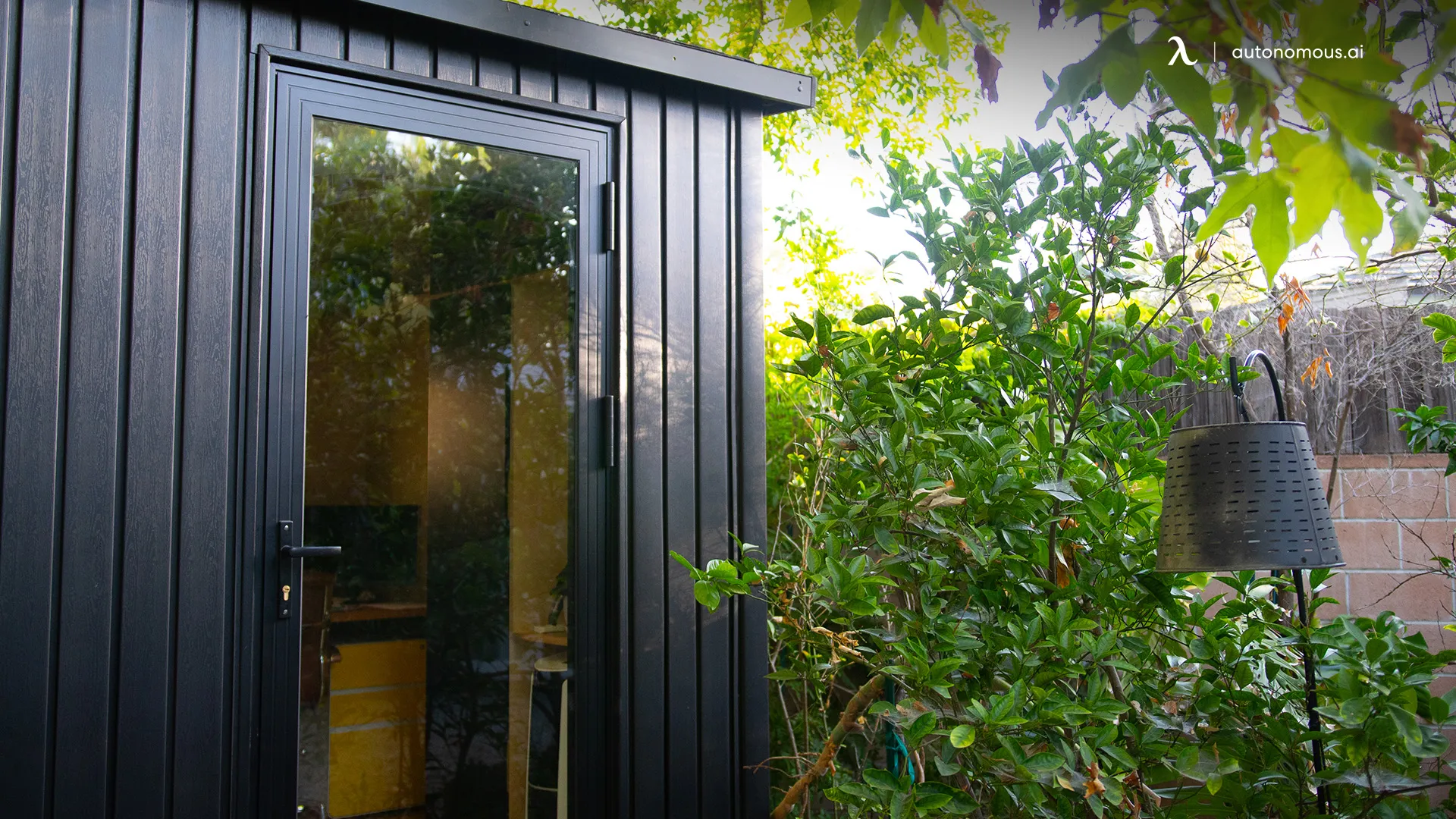
You Don't Need to Waste Time on Construction Laws
Building modular homes in Wisconsin requires carefully studying the local ordinances and regulations. With so many laws and building codes, it can get confusing to wrap your head around the legal requirements.
Fortunately, Autonomous ADUs are pre-built units that comply with the local regulations and ordinances. By investing in a WorkPod, WorkPod Versatile, or a WorkPod mini, you don't need to go through the multiple construction laws or hire expensive contractors, helping you save time and money.
It's Quick to Assemble
An Autonomous ADU is quick to assemble. We will send a team to install the unit on your property, which will only take a few days.
Avoid the hassle of digging, building boundary walls, or getting construction equipment on your land by ordering an ADU from Autonomous, and we will take care of the rest.
Looking to Expand Your Living Space? Invest in Autonomous ADUs!
Autonomous offers three different types of ADUs, and these include the following:
WorkPod
A prefab house in Wisconsin can cost up to $90,000 or even more, depending on various factors. To save money and time, you can invest in an Autonomous WorkPod that has a small starting price of $16,900. It offers 98 sq ft of living space that you can use for work or leisure activities.
WorkPod mini
The WorkPod mini is similar to the Autonomous WorkPod but is slightly smaller and has an affordable price tag of $14,900.
WorkPod Versatile
If you're looking for prefab homes in Wisconsin, the Autonomous WorkPod Versatile is the best option to consider, with prices starting from $18,900. It offers 105 sq ft of insulated space and comes with complete furniture and accessories at an extra cost.
Whether you're looking to invest in WorkPod, WorkPod mini, or WorkPod Versatile, Autonomous ADUs offer a high-quality living space at an affordable price. These are flexible enough to accommodate whatever your life needs and come prepared with multiple outlets and lighting so that you can start using the space immediately.
Plus, it's weatherproof, and if your locality requires a permit, we are more than happy to provide the technical drawing.
Final Thoughts
Building prefab homes in Wisconsin offers many benefits, including affordable living space and flexibility. However, manufactured houses can be expensive, and construction work may require permits from the state.
Fortunately, those interested in manufactured homes in Wisconsin can now purchase Autonomous ADUs. These home office pods are cheaper than building and installing prefab homes, have a gorgeous minimalistic design, and are extremely energy efficient.
Autonomous ADUs only take a few days to assemble, and you don't need to hire expensive contractors or work with architects to ensure compliance with the relevant building codes.
Spread the word
.svg)


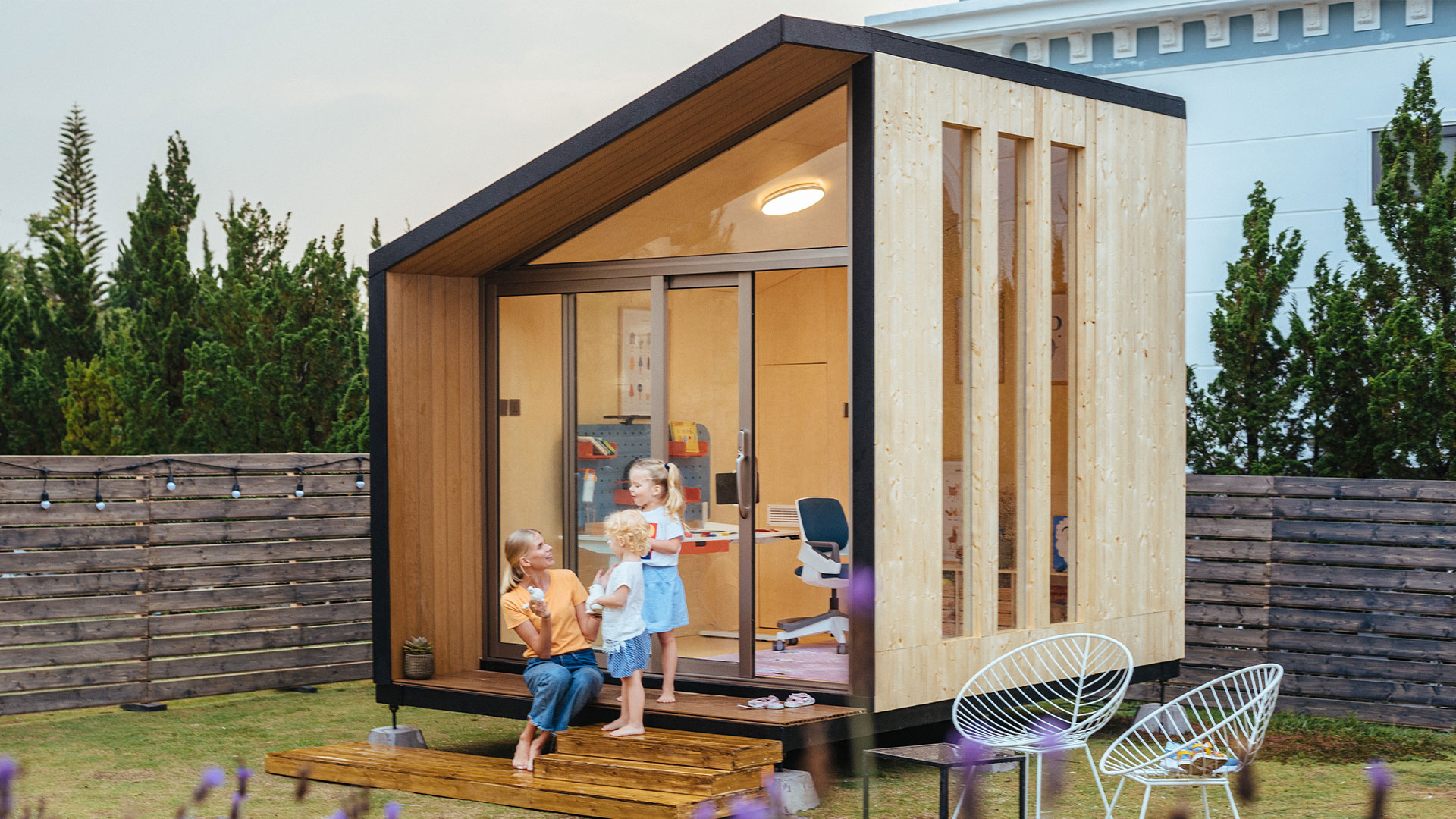

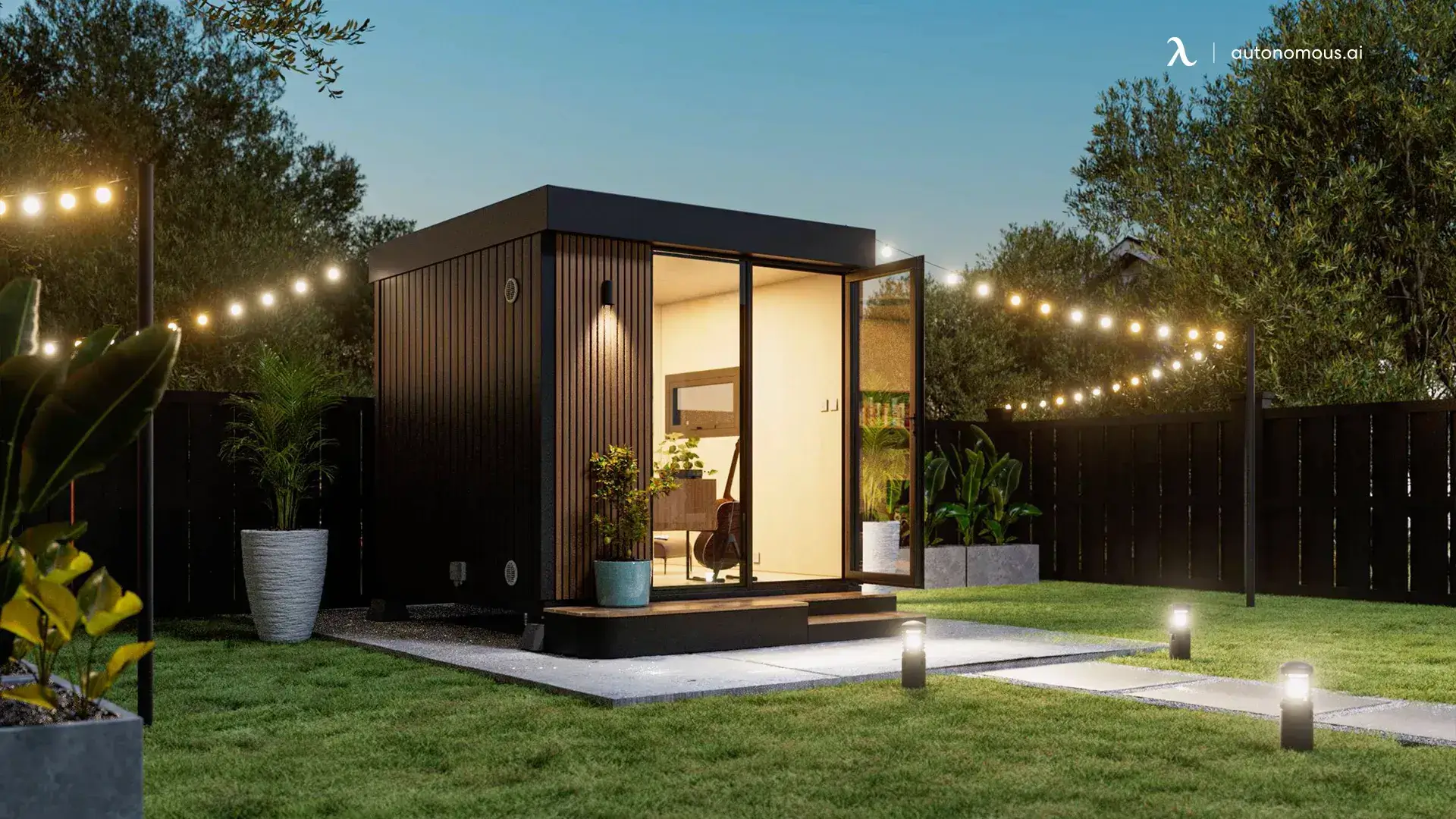
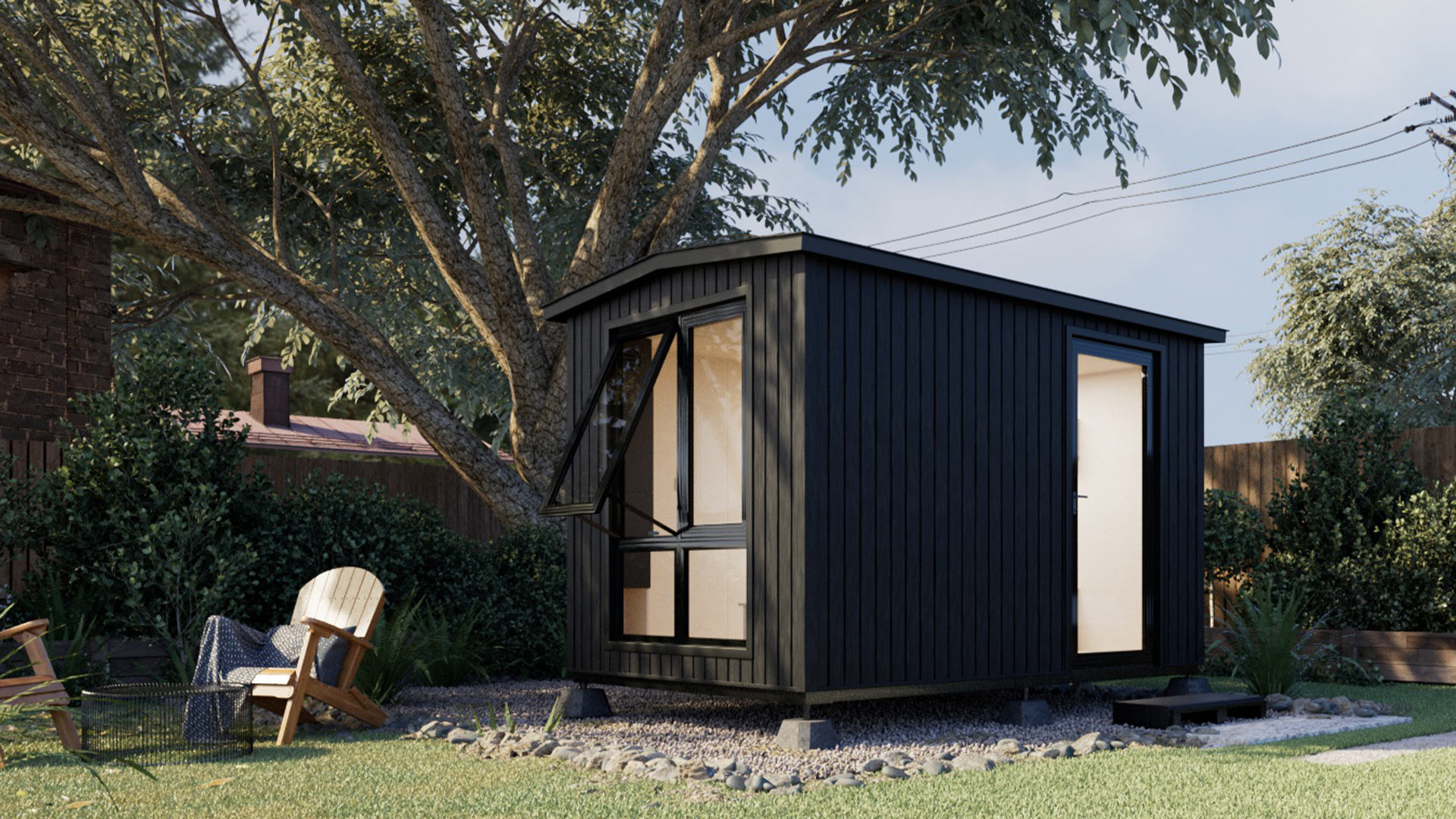
.webp)
.webp)




